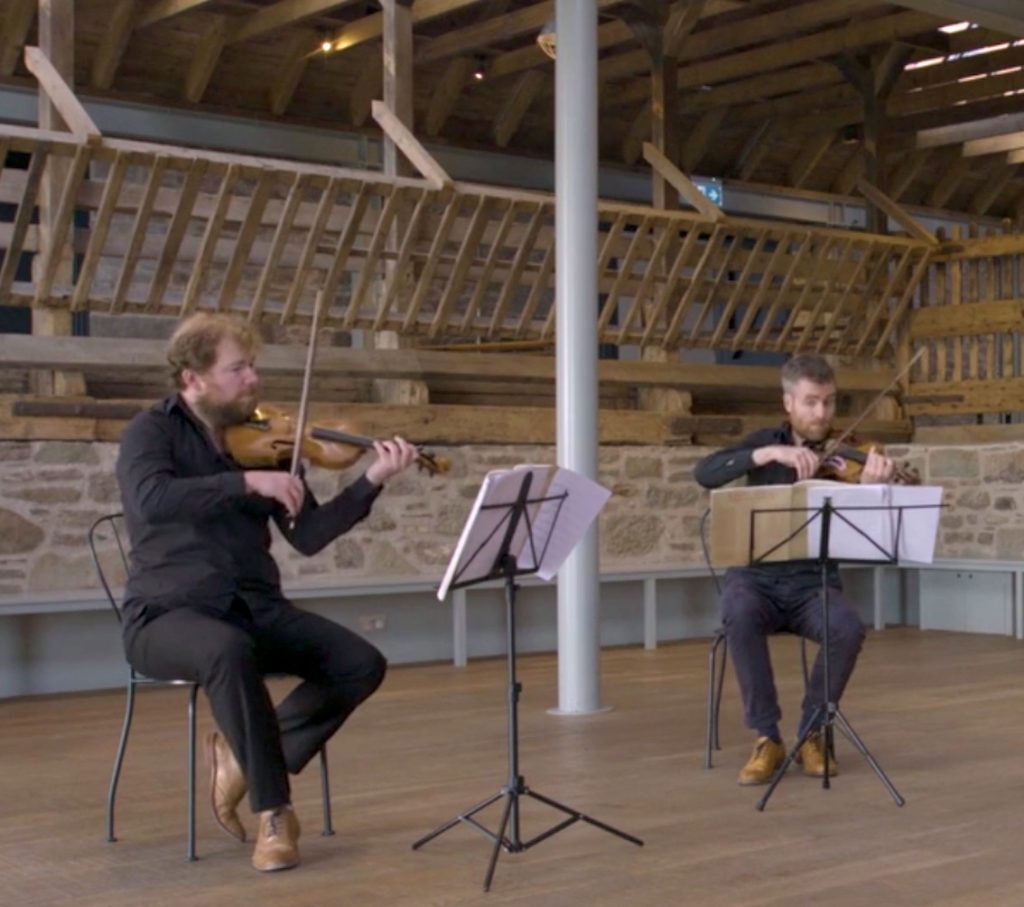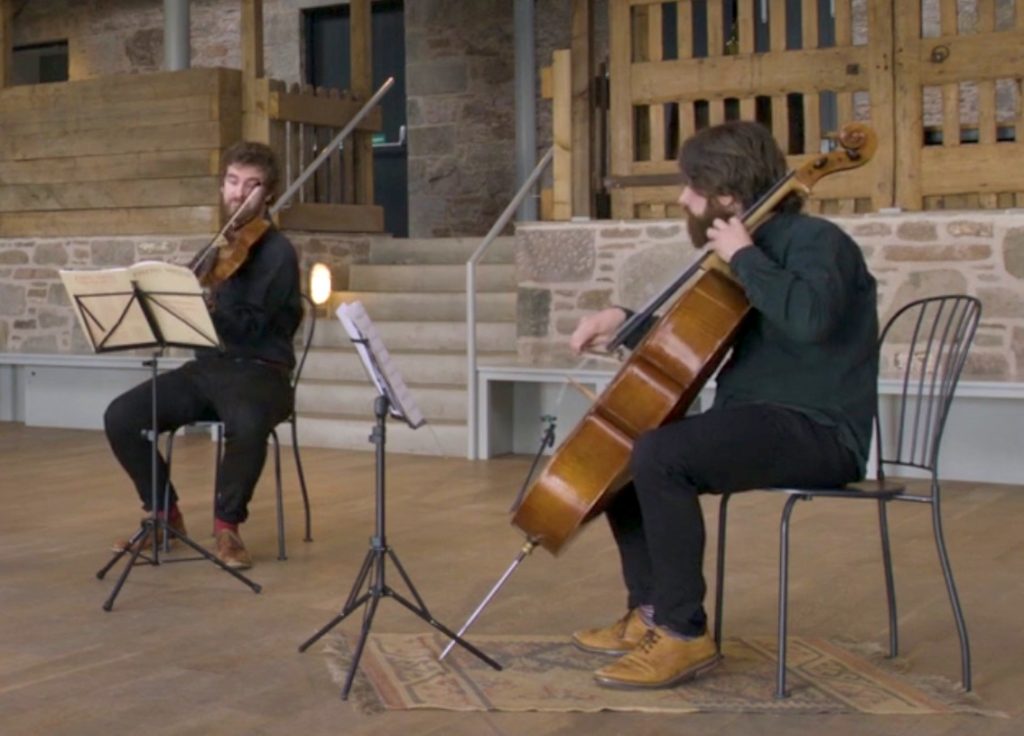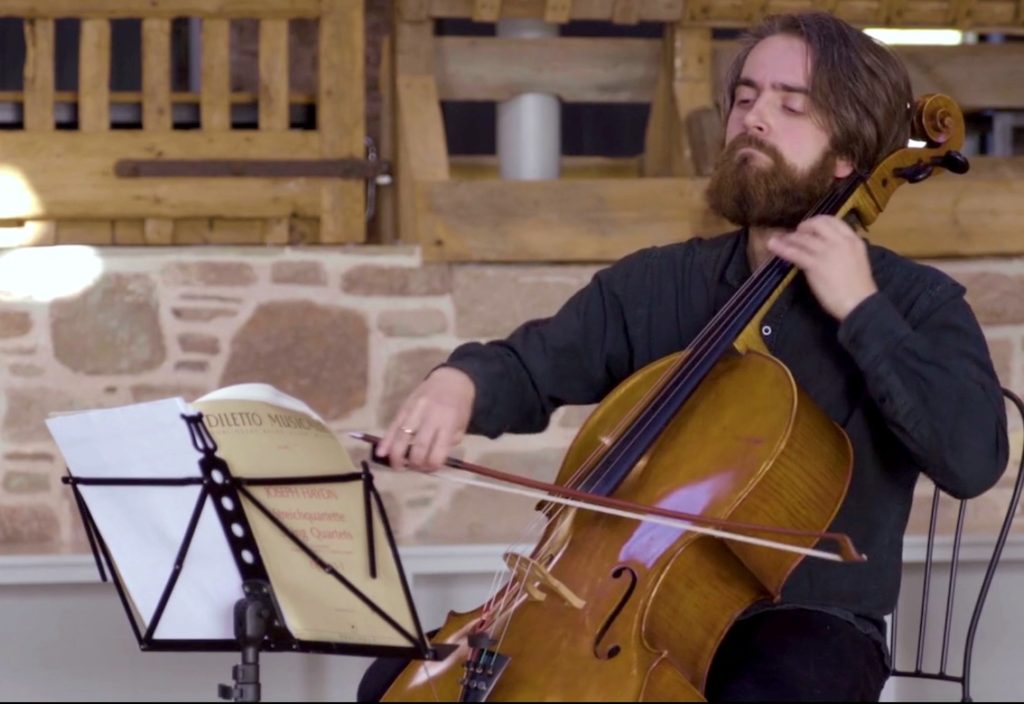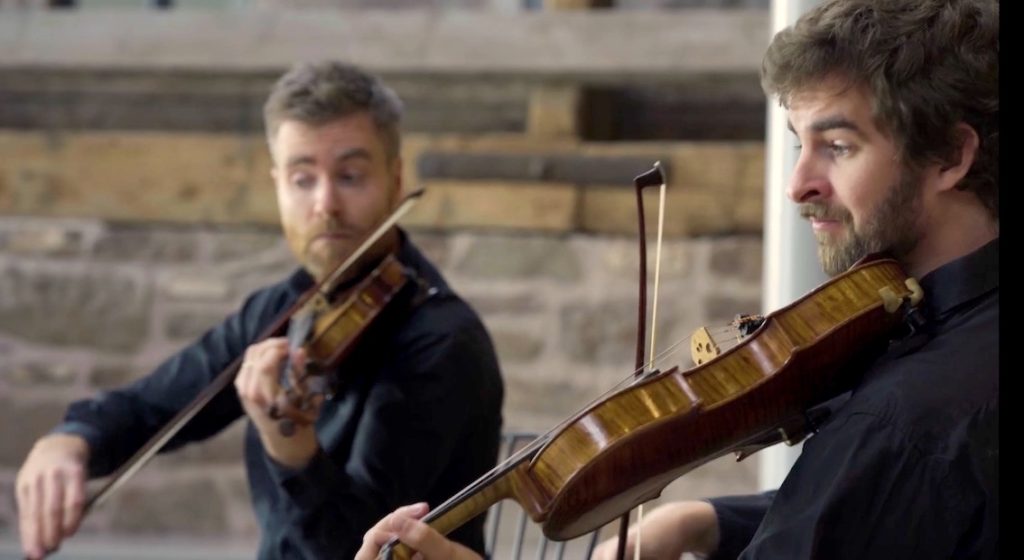The Maxwell Quartet, through hard work and concentration, has risen to high international standards, which says lots about training and performing in Scotland. There have been few quartets in recent years that match their calibre. To play Haydn well is not easy, even if it seems easy on the ear. It requires technique, harmony, synchronization and exuberance, all qualities expressed by the Maxwell Quartet. To achieve the balance and sonority, each member of the quartet is acutely aware of his three partners. The melody or theme must move from one to another without any one instrument being too dominant. Many quartets do not have this equanimity that the Maxwell has achieved. Haydn’s quartets of Opus 74 are very precise and sensitive in their mode, and inevitably come across beautifully in the early classical era.
The Maxwell quartet met this challenge supremely; the pulse and the rhythm demanded by Haydn were met. The third movement of the first quartet (Opus 74, no.1) they played was delightful in that the first violin was light and airy, giving way to the importance of the lower strings. The final movement can seem be fast and furious, but could at times be paced a little more leisurely. The quartet was clearly enjoying their playing, and this came across very nicely to their audience, who unfortunately were not able to be with them.


The Scottish song arrangements showed the quartet to be fine fiddlers. There was the fiddling expected of the first violin, but later the gravitas needed for the viola (the string bagpipe) and the cello (the ground bass) to come through. There was a sensitive choice in the sequence in which the tunes were played. (More information below). The mood of these songs was beautifully expressed, all of them being poignant.



The second Haydn quartet (Op 74, no. 3), following on almost immediately from the first quartet from Haydn’s pen, in some respects requires even more sensitivity, and this was felt throughout their rendition. It was interesting to follow what must have been the mood (or was it mode?) of Haydn at Esterhazy. After the slower and “dancing” second and third movements, the last in many ways is like “letting off steam”, exuberant in character. It is all about “breathing”, short relaxations and general pauses before the tempo resumes at an allegro con brio pace (someone aptly named the quartet “The Rider” or “The Horseman”). The Maxwell quartet managed this beautifully and their accomplished performance is the mark of truly instinctive musicianship. Letting us hear and see this first-class performance was a privilege.
Denys Wheatley
(9th November 2020)
Find out more about the Maxwell Quartet here
If you missed the concert, please subscribe to Inverurie Music (details here) and ask for details about how to view the video.
A note from the Maxwell Quartet about the Traditional Melodies
All arrangements are by the Quartet. George tends to find the melodies, we workshop them together, and Duncan commits the arrangements to score!
Coilsfield House (Nathaniel Gow, Edinburgh)
Drunk at Night Dry in the Morning (Niel Gow, Perthshire)
Fear a Bhata (Jean Finlayson, Isle of Lewis)
Da Full Rigged ship (unknown, Shetland)
Da New Rigged ship (unknown, Shetland)
The burning of the pipers hut (unknown, Highlands)
The Marquis of Huntly (William Marshall, Fochabers)
Miss Gordon of Gight (Isaac Cooper, Banff)




Comments: no replies